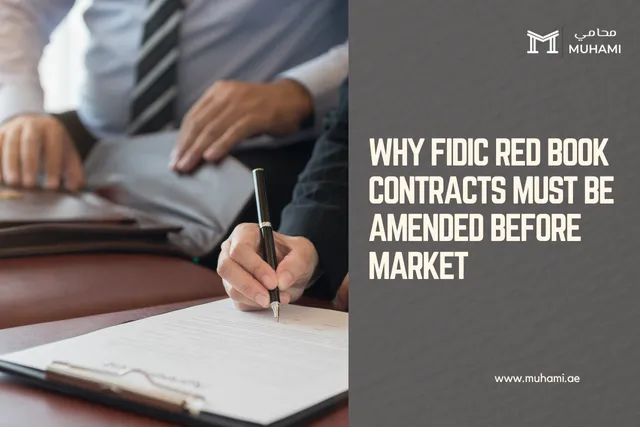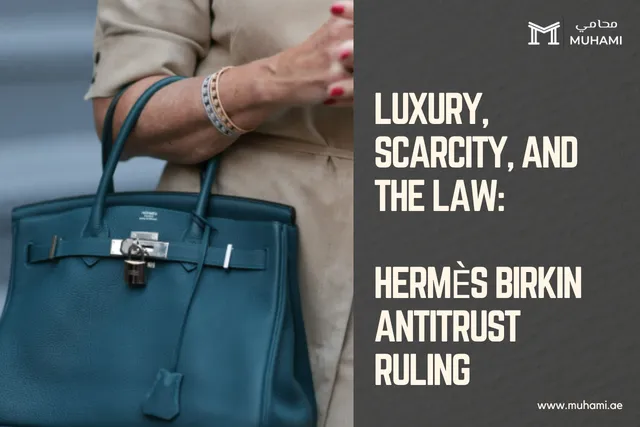The Legal Anatomy of a Netflix Scammer: Contracts, Fraud, and Loopholes

Dissecting Modern Deception Through the Lens of Law — with a UAE and Cross-Border Twist
From The Tinder Swindler to Inventing Anna, Netflix has turned scammers into global sensations. But
beneath the designer labels, hotel suites, and private jets lies a sobering truth: most of these high-stakes
con artists operate in the area between contract law and criminal fraud. Their stories aren't just bingeworthy — they’re case studies in what happens when charm outpaces compliance.
This article unpacks the legal mechanics of these modern scams, examines why they’re so hard to
prosecute, and explores how UAE-based businesses and individuals can protect themselves when deception crosses borders.
The Common Thread: Contract by Deception
At their core, many scammer stories hinge on one concept: fraudulent inducement into a contract.
The scammer doesn’t steal by force. Instead, they get victims to willingly give money, access, or
resources under false pretenses.
Legally, this falls into the space where:
• Contracts were signed or agreed, but
• Consent was not freely given, because it was based on material misrepresentation.
In civil jurisdictions (like the UAE and most of Europe), this opens the door for claims of voidability
— meaning the victim can try to unwind the contract. But in reality, that’s often cold comfort if the
money’s gone and the scammer has vanished.
Case Study 1: The Tinder Swindler
Simon Leviev — real name Shimon Hayut — posed as the son of a billionaire diamond mogul. He
convinced women to send him tens of thousands of dollars, claiming he was in danger and needed funds
urgently. He even repaid some victims with money taken from others, creating a Ponzi-style illusion of
credibility.
Legal Red Flags:
• Misrepresentation of identity and wealth
• False pretext to induce wire transfers
• Use of fraudulent documents and fake payment confirmations
Civil vs. Criminal Liability:
• In most jurisdictions, including the UAE, requesting money under false pretenses with intent to deceive can trigger criminal fraud charges.
• But if the victim willingly transferred funds — especially through a signed loan agreement or
written promise — it may complicate prosecution. The defense can argue the victim acted
voluntarily, not under duress.
UAE Perspective: Under Federal Decree Law No. 31 of 2021 (UAE Penal Code):
Article 451 criminalizes anyone who fraudulently obtains money, property, or documents by using deceit, false identity, or misleading information.
So if a similar scam occurred in the UAE, it could carry a jail sentence and a fine, even if no physical coercion was involved. Notably, electronic fraud and use of forged documents would attract harsher penalties under UAE cybercrime laws.
Case Study 2: Inventing Anna (Anna Delvey)
Anna Sorokin styled herself as “Anna Delvey,” a wealthy German heiress. She deceived hotels, banks,
investors, and even law firms — exploiting not just individuals, but institutions.
Her schemes were elaborate: she presented fake bank statements, used corporate-sounding emails, and
even convinced one bank to extend a $100,000 line of credit.
Legal Red Flags:
• Fabricated financial documents (bank statements, letters of credit)
• Use of corporate structures to build credibility (e.g., "Anna Delvey Foundation")
• Manipulation of payment delays and overdraft facilities
Civil vs. Criminal Liability:
• Unlike Simon Leviev, Anna targeted businesses, meaning her activities invoked not only fraud
statutes but also white-collar crime and attempted grand larceny.
• Many of her actions could trigger banking fraud, document forgery, and attempted theft charges under various penal codes.
UAE Perspective: The UAE penal code takes a zero-tolerance approach to fake documentation, especially in financial contexts:
• Article 252 (Forgery of Documents): Making or using a forged document with intent to deceive is a serious criminal offense, punishable by imprisonment.
• Article 399 (Breach of Trust): Misusing access to funds, especially when linked to professional services (e.g. law firms or advisors), could escalate the charges.
Had Anna operated in the UAE — say, securing a luxury hotel suite in Dubai with fake proof of funds — she would likely face detention during investigation and asset freezing, pending resolution.
The Cross-Border Conundrum
Both cases highlight a major challenge in dealing with modern fraud: jurisdiction. Scammers today
operate across multiple borders, opening accounts in one country, issuing contracts in another, and targeting victims globally.
For UAE-based businesses or investors, this creates serious exposure:
• Wire fraud or misrepresentation that originates outside the UAE but affects a UAE account or transaction may still fall within UAE jurisdiction, particularly under AML (Anti-Money Laundering) and CBUAE reporting requirements.
• Victims often don’t know whether to pursue criminal proceedings locally, international asset tracing, or a civil lawsuit abroad — all of which involve time, cost, and strategy.
Protective Measures (Especially in the UAE)
For high-net-worth individuals, entrepreneurs, and companies operating from or through the UAE, the following steps can mitigate risk:
1. Demand Source-of-Funds Verification
Particularly when entering joint ventures or high-value service arrangements, request verifiable
proof of assets — not just self-declared wealth.
2. Use Escrow Arrangements and Payment Conditions
Never wire large sums without contractual safeguards, milestone payments, or third-party
validation. Escrow can be a powerful anti-fraud tool.
3. Digitally Authenticate Counterparties
Ensure the people you’re dealing with are who they claim to be. Cross-reference IDs, LinkedIn,
corporate registries, and ask for licensed legal representation where possible.
4. Include Fraud Clauses in Contracts
A well-drafted agreement should include fraud carve-outs and governing law clauses that
give the victim remedies — including in UAE courts or international arbitration.
5. Pre-Emptive Due Diligence
If something feels off — delays, excuses, overly complex stories — investigate early.
Deception thrives in ambiguity.
Final Scene: The Law Always Shows Up — Eventually
Scammers like Simon and Anna remind us that in the world of high-stakes deception, the law is often playing catch-up. But catch up it does. While charm, branding, and illusion can mask a fraud temporarily, the paper trail always surfaces.
In an increasingly borderless world, legal protections must be as sophisticated as the scams they're designed to prevent. And as the UAE continues to evolve as a financial hub, cross-border vigilance is no longer optional — it's essential.
Any Questions?
Connect with lawyers and seek expert legal advice
Share
Find by Article Category
Browse articles by categories
Find Article by Practice Area
Browse articles by practice area
Related Articles

Cash locked in VAT is cash you cannot u…
A practical guide to reclaiming VAT on commercial real estate in the UAE Two…

Cash locked in VAT is cash you cannot use to run …
A practical guide to reclaiming VAT on commercial…

Why FIDIC Red Book Contracts Must Be Am…
Introduction For Owners and Contractors in the UAE, the unamended FIDIC Red …

Why FIDIC Red Book Contracts Must Be Amended Befo…
Introduction For Owners and Contractors in the…

Luxury, Scarcity, and the Law: Hermès B…
On September 17, 2025, a California federal judge dismissed an antitrust lawsui…

Luxury, Scarcity, and the Law: Hermès Birkin Anti…
On September 17, 2025, a California federal judge…
